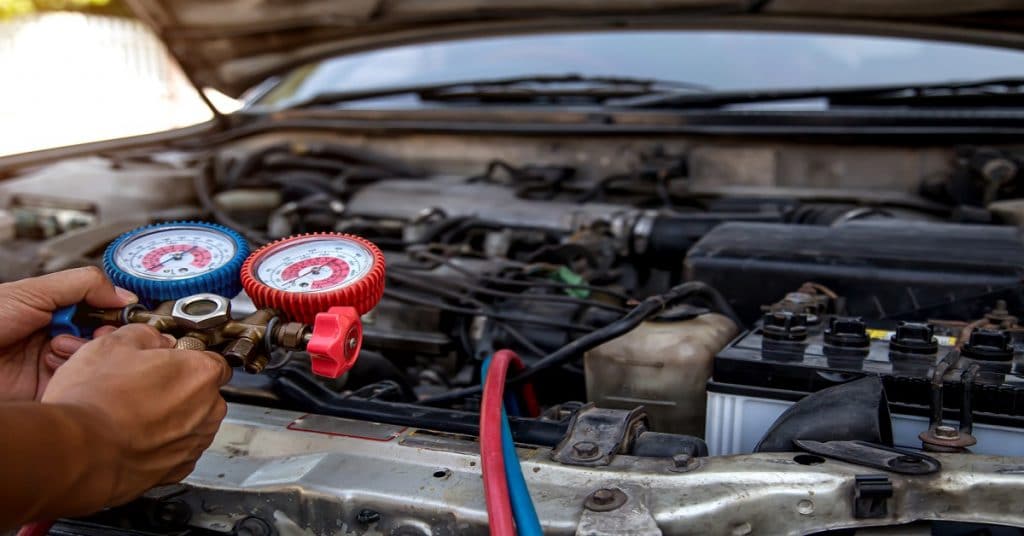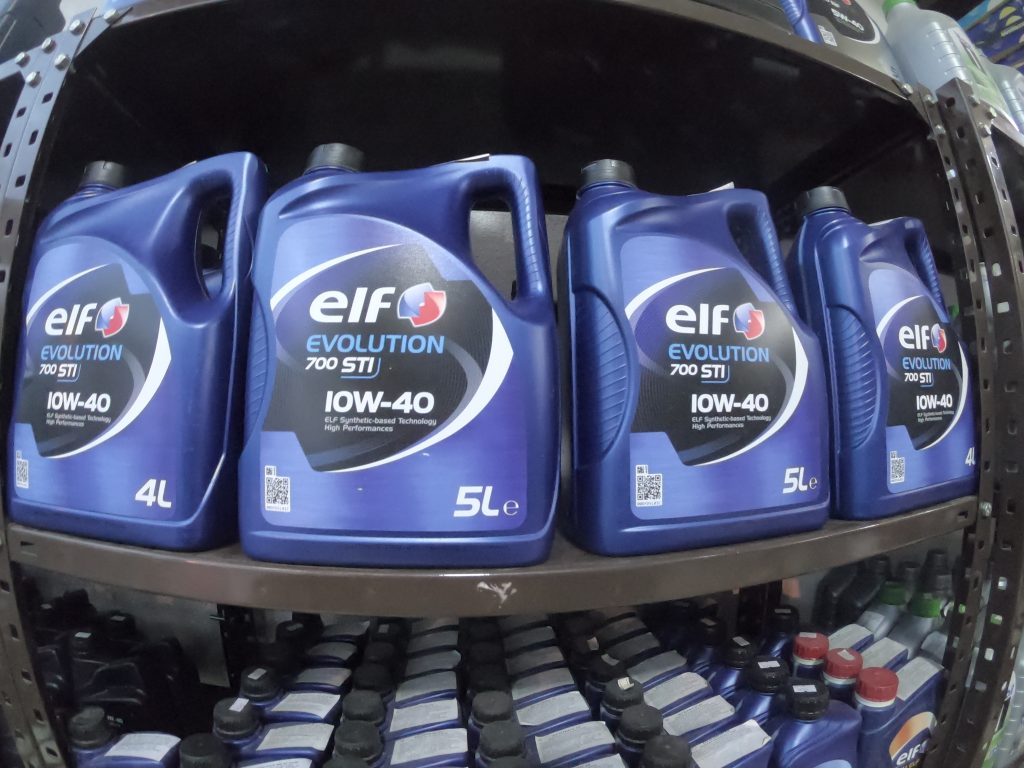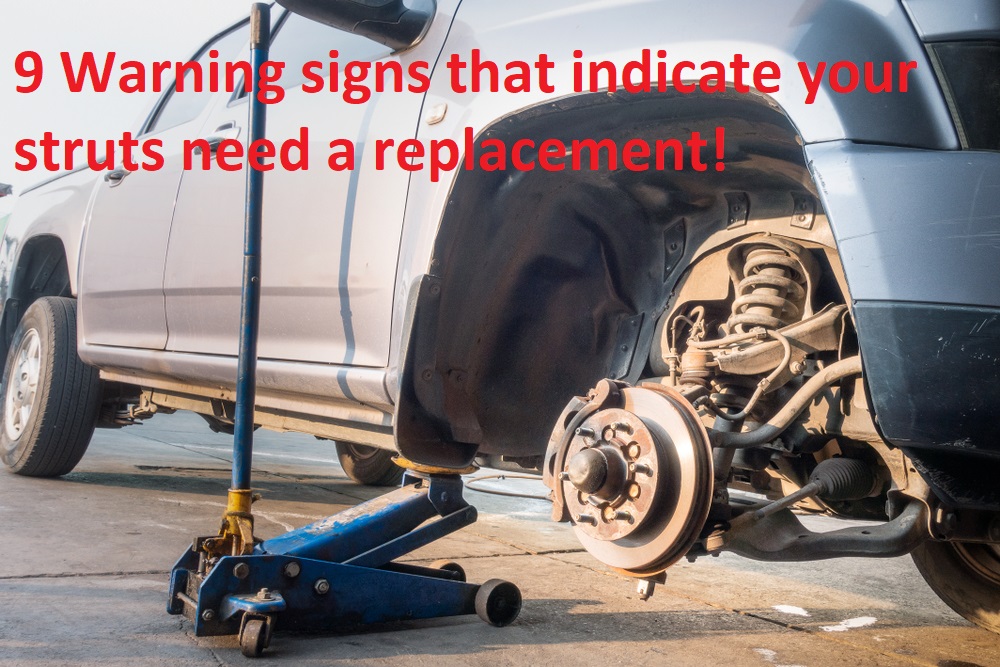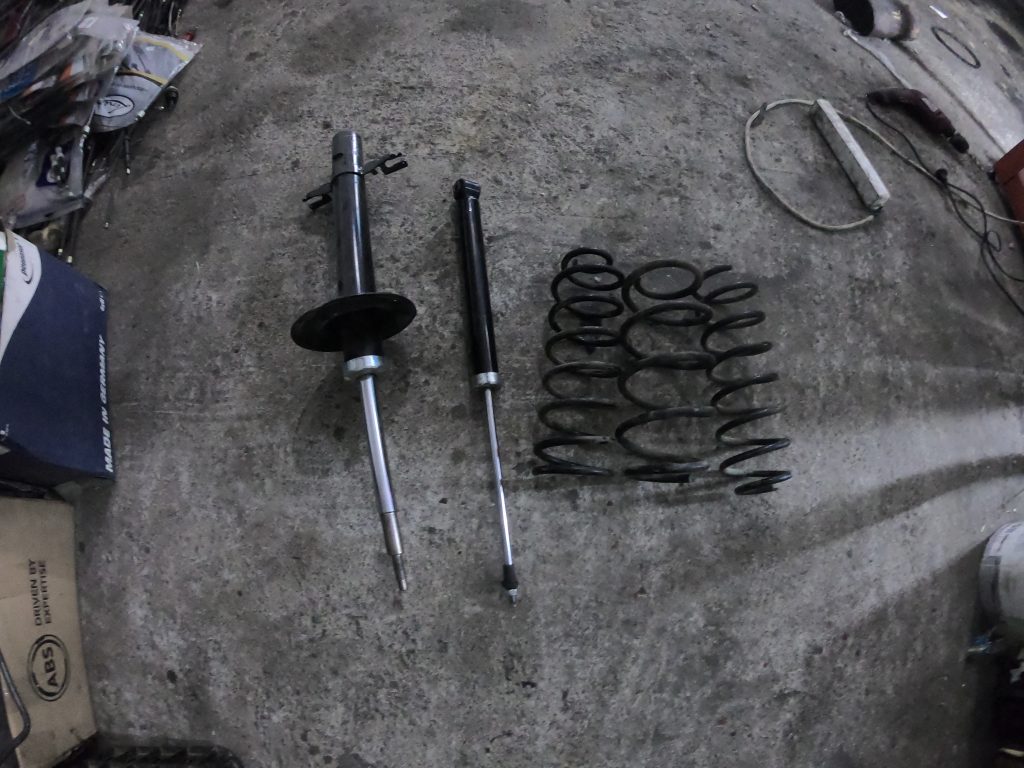If you want to DO IT YOURSELF, you should know when to stop the coolant charging process (when it’s already at the correct pressure) because the compressed gases injected tend to expand so much, and they could be troublesome.
Some cheap coolants could have instructions that may mislead you and confuse you up to the point that you overcharge your car aircon.
Sure, this problem would be a nice challenge if you are a car tinkerer or a DIY person. Still, in general, this car AC issue is best passed on to the professionals who know how to do accurate readings and know how to appropriately refill your car aircon system.
Accuracy is needed
Because your car AC relies on the cooling effect of expanding gases to provide cold air, the amount of these gases in your air conditioning need to be pretty accurate.
If there’s not enough room in your air conditioning system for these gases to expand appropriately, it’s not going to be able to function. If you recently topped up your AC system, you may notice a few signs that the new system is overcharged and things are not working the way they should.
If you’re experiencing any of these when you try to turn on the AC to cool down, then you definitely need to have this problem looked at.
Signs and symptoms of an overcharged ac system
You know that your car’s AC functions correctly when you press the operation switch on your dashboard, comes on almost immediately, and infuses your car’s interior with cool air. If you haven’t used your vehicle for a few days or more, give it a minute or two before it delivers to you cool air.
But you should already know that there’s something wrong when it’s only the fan that seems to be working and there’s no cooling happening at all.
Be on the lookout for some signs below that could tell you that there’s something wrong and your car AC is telling you to shell out some money:
Lower Cooling than Usual
This is the top symptom that relays the message to you that your AC is overcharged. The liquid inside the system is cramped for space to expand and to depressurize.
You feel like your car AC is making you feel like a fool because the air temperature that it emits is equal to the prevailing weather temperature in your surroundings.
So the AC is useless in the meantime because you’re sweating hard inside the car. And the worse thing is, is if it’s blowing out hot air. It might as well be a heater.
No Air Coming Out
It’s actually a safety feature in your car AC at work because it detected something abnormal in the system, which is the incorrect pressure.
It actually saves you money in the long run because if the car AC operates without air coming out, it can be damaged beyond repair and will cost you unnecessary expenses.
High Pressure Reading
The pressure gauge of your car AC will indicate higher pressure that is more than it could take. It will tell the story that the system has been overfilled beyond capacity.
The compressor, for its part, couldn’t effectively manage the excessive quantity of coolant inside, which increased the pressure and resulted in a higher temperature.
The pressure and the temperature have an interactive relationship, and if this is the scenario, they will function poorly together.
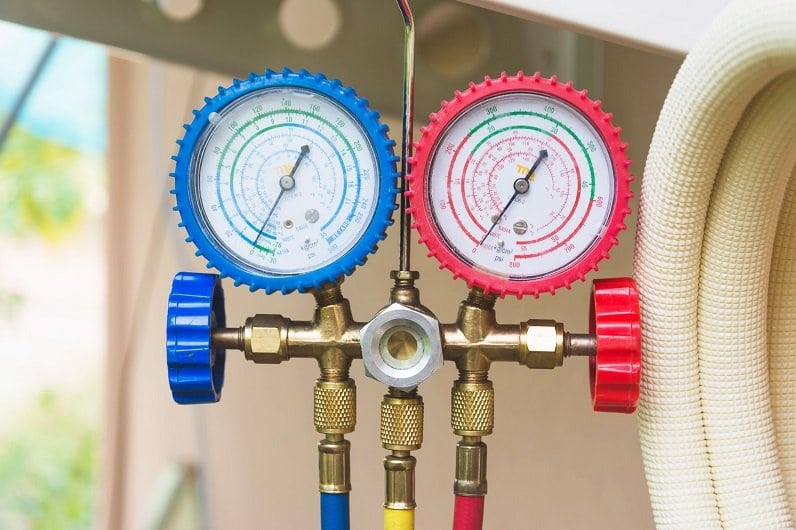
Abnormal Compressor Noises and also Compressor Damage
The compressor reacts negatively when your car’s AC system is overcharged. It will work much harder to try to use all the coolant within the lines.
This is the way that your AC works – it converts compressed liquid into a gas and then reverts it to the liquid state again. An overcharged status can’t make the decompression from a liquid into gas possible.
So what happens instead is your compressor is gushing out liquid coolant instead of its gas coolant form. This will also decrease the lubrication in the compressor and permit oil to pool up inside, thereby damaging it.
Because of overwork and the car AC struggle to pump the coolant through the lines, there will be a noticeable annoying sound that will be audible from the AC compressor.
Some AC compressors have emergency bypass features that stop the additional pressure from damaging the pump.
Engine Complications
Do you know that the coolant enters only through a tiny nozzle of the compressor? If your car AC has been overcharged, the liquid coolant will be bullied to be forced through that little nozzle.
The compressor will need excessive power, and it will induce noises to emanate from the drive belt as the speed increases. The tension will even result in the belt breaking up.
If it doesn’t break, it will still need extra power, which will make your engine work a little bit harder. Specific components interconnect the belt and the engine to keep them operating smoothly with the car AC.
But if the AC is overcharged, this interconnection that they have will go haywire.
An overworked engine will make you experience unpleasant episodes of poor car acceleration, scary fuel-guzzling, or difficult idling when your car AC is in operation.
Then, when you turn off the car AC, all these issues suddenly disappear. This is an almost sure sign that the overcharged AC is the culprit.
The Compressor is Busted
The compressor has been badly damaged. The seals and the valves inside are breaking because of the extreme pressure, and the pump will not function.
As an inbuilt safety measure, the compressor will shut down, and the AC will eventually stop functioning. You’re looking at a scenario where you’re going to need a mechanic, and you’ll need to shell out a hefty sum to get the compressor and the AC up and running again.
There’s even a chance you might need replacements, not repairs.
Overheating
The compressor broke down. The fan belt makes whirring noises. Signs that the car AC is overcharged. Most likely, another consequence would be that your vehicle will overheat.
The engine will be struggling to compensate for the added pressure. There’s too much at stake when your car AC is overcharged. In other words, it’s not worth it to do DIY if you’re not too informed about the procedure and the proper charge of coolant.
Also read: Why Does My Car’s AC Smell Like Vinegar?
Can you fix an overcharged car ac by yourself?
So you’re thinking, your car AC is overcharged. The coolant is in excess, so your logical thinking is to get the surplus coolant inside. Easier said than done.
When people talk about car AC coolant, they use the term Freon. That’s true, but Freon is illegal now because apparently, it’s not good for the environment. It has been replaced by less dangerous chemicals, which are the new coolant materials injected into your car AC.
You would be saying that, ok, I’ll do it myself, get the excess coolant out. We warn again, that’s a hazardous task to do, without any training whatsoever.
You don’t want these chemicals to get on your skin, and you don’t want to inhale any of their fumes. And your work should be pretty accurate with the coolant quantity that’s supposed to leave in the car AC.
What are the legal and proper ways to top up your car ac with coolant?
Firstly, safety gear like gloves and eye protection should be worn at all times. We don’t want an industrial accident to happen here.
Then, the coolant should be removed. This removal process is not as easy as putting the coolant into the lines in the first place.
There are government laws that are guidelines when putting coolant chemicals into the car AC. Countries have become stricter with anything that’s negatively affecting the ozone layer and causing global warming, and this includes car AC coolants.
So this isn’t one of the car tinkering activities you would want to do by yourself. Yes, you’re free to buy large quantities of coolant from the hardware, but you should know the government rules that enforce their release into the car AC.
And if you’re thinking of letting the staff at the hardware store install the coolant into your car AC, you’re doing something illegal!
And whatever coolant that can’t be used anymore should be disposed of properly. You can’t just drain it into a bucket and throw it into the sewerage.
When you properly discharge a car AC system, this requires legal certification. And sorry, DIY doesn’t work here. You must be adequately trained and certified to do this task. So, in finality, you let the trained professionals do it. There’s no beating around the bush with this situation.
What will the ac mechanic do?
The mechanic will use a machine with an airtight seal with a vacuum to extract the excess coolant from the system. No coolant should be allowed to leak out. This product is a compressed gas in liquid form that’s dangerous when not handled properly. You can’t possibly do this on your own.
The mechanic will hook up one end to the low-pressure port and another hose to the high-pressure port. Based on the pressure reading, they have a gauge that will measure how much refrigerant is in your AC system.
When the hoses are accurately connected, the machine is turned on and will be operating until the amount of refrigerant in the AC system is enough.
How much would it cost?
Also read: Does Your Car AC Use Gas?
When the mechanic bleeds the AC system of excess coolant, expect approximately the same bill as what they would charge you to refill the system. But maybe, it’s a bit cheaper because you don’t have to pay for new coolant, just for the labor and for the equipment that the shop is using.
Expect somewhere between $150 to $250 for the car AC discharge job.
This also depends on the shop’s reputation you’re taking your vehicle to, your car makes, model, and year of purchase.
It is best to do the rounds first of the shops before selecting one to do the job.
The bottom line is, let the jobs of both discharging and the input of coolant of your car AC be taken over by the professionals. There’s no other way to accomplish it.

